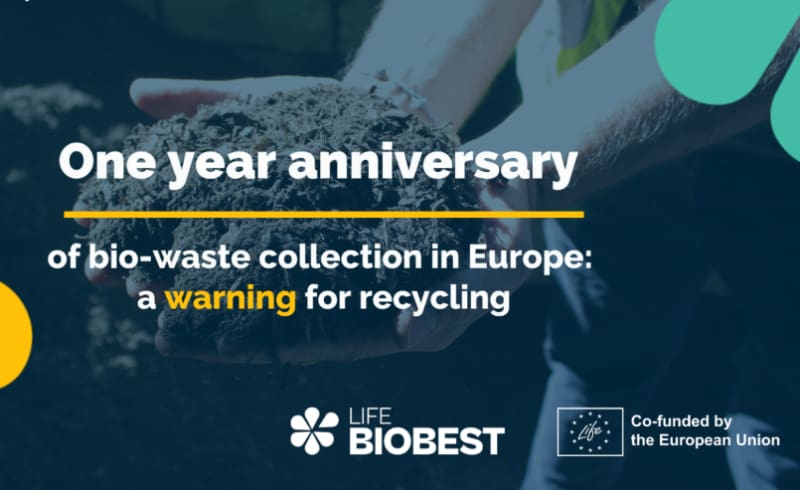 Brussels – On the first anniversary of the EU obligation to collect bio-waste separately, the LIFE BIOBEST consortium warns that Europe is still falling short of their true potential for bio-waste capture.
Brussels – On the first anniversary of the EU obligation to collect bio-waste separately, the LIFE BIOBEST consortium warns that Europe is still falling short of their true potential for bio-waste capture.
Article 22 of the Waste Framework Directive (WFD) requires all EU Member States to either separately collect bio-waste or apply home composting solutions.
While this mandate has brought bio-waste management into the spotlight, the past year has proved that much more remains to be done. In 2024, Zero Waste Europe and Bio-based Industries Consortium found that a staggering 74% of all kitchen waste generated in the EU still ends up in landfills or incinerators. This amounts to 45 million tonnes of food waste that is not being properly managed.
Meanwhile, LIFE BIOBEST has developed guidelines and analysed best practices from numerous regions across Europe to provide local authorities with tools and information to implement and improve bio-waste management.
ENT Foundation, project coordinators, states:
“We know that bio-waste remains deprioritised across much of the EU, even despite the new requirement for separate collection. There is need for further intervention and guidance from upper level authorities, including targets on the quality of bio-waste and quantity of bio-waste in the residual waste. Local entities should be guided and trained to implement high efficiency systems.”
High-quality bio-waste is key to delivering environmental and economic benefits and close the cycle by applying high quality compost and digestate on the soil. Ideally, impurities should remain below 2%, with 5% as a workable threshold.
Manon Jourdan, Implementation Officer at Zero Waste Europe, states:
“LIFE BIOBEST has provided a roadmap for better bio-waste management—now we need the will to use it. Let’s seize this chance to turn empty talk into lasting action.”
The LIFE BIOBEST consortium calls on municipalities, waste management companies, and policymakers to strengthen their waste management strategies to maximise the environmental and economic benefits of high-quality compost and digestate production and application.
Zero Waste Europe
https://zerowasteeurope.eu







